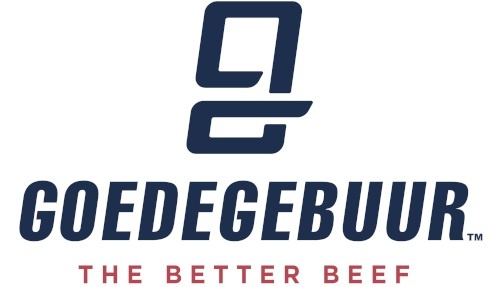Hello world

- Sector: Voedingsmiddelen
- Oplossingen: Banddesinfectie
- Techniek: UVC
Goedegebuur Meat processes 750 tonnes of beef into 300 different products every week. Ten percent of all that meat is destined for the Dutch market. The remaining 90% crosses international borders. In addition to the European Union, Goedegebuur is also increasingly exporting to the Middle East and the Far East.
Hygiene is vitally important
"Goedegebuur's success is due in part to the intelligent production process and our high-quality standard," says Mr. Gonlag (technical department). "We maintain hygiene throughout the production process. Prevention is better than cure, and we started using UVC disinfection to reduce any risk of infection in 2004. UVC light is short-wave, energy-rich radiation that combats microorganisms such as bacteria and viruses extremely effectively."
Robust, easy to assemble, easy to maintain
Mr. Gonlag: "We are now approaching our third generation of disinfection units. We purchase them from Bioclimatic, because this model is much more robust and user-friendly than the units we had. Cleaning at the production sites is always very thorough, and Bioclimatic's UVC units are perfect for that. They can take a beating, are easier to assemble, the bulbs are easier to change and if we need parts, they're shipped quickly.”
Mr. Goud, Head of Technical Services: "The day after we installed a new unit on a conveyor belt that hadn't previously been UVC disinfected, I had a happy quality manager on the phone. Within a few hours, the germ count had already dropped to almost zero. Another major advantage of UVC units is that you no longer have to stop the belts to clean them. Production can continue as usual, so the investment is actually quickly pays for itself."

- Sector: Industrie
- Oplossingen: Waterdesinfectie
- Techniek: UVC

- Sector: Industrie
- Oplossingen: Waterdesinfectie
- Techniek: UVC

- Sector: Industrie
- Oplossingen: Waterdesinfectie
- Techniek: UVC

- Sector: Industrie
- Oplossingen: Waterdesinfectie
- Techniek: UVC







